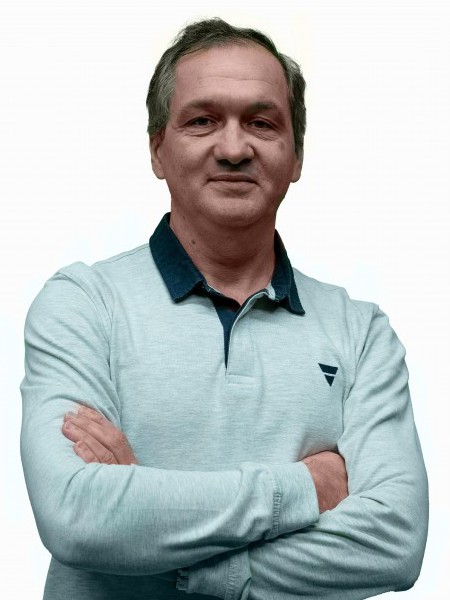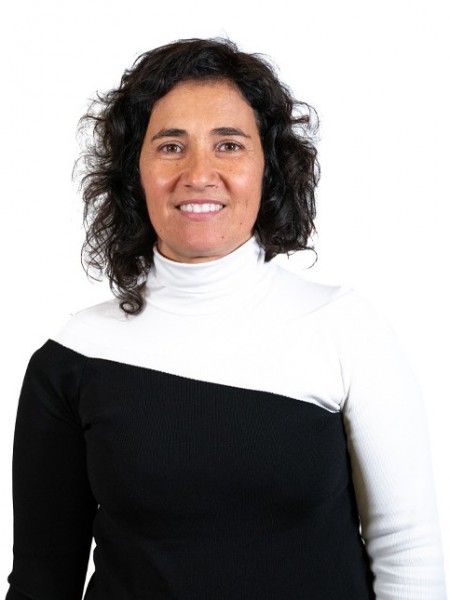resumo
There is currently a demand for flexible biomedical sensors. Characteristics as soft, thin, elastic, flexible and comfortable to the contact with skin should be matched with performance and ultimately made of sustainable, and biocompatible materials. In this work, chitosan as a flexible biodegradable polymeric matrix was combined with ferroelectric BaTiO3 particles obtained by hydrothermal synthesis to prepare flexible films. The biocomposites have high flexibility and the addition of particles improves the elasticity of pristine chitosan films. Of relevance towards the targeted application, the biocomposites exhibit a better resistance to water than chitosan. The dielectric permittivity increases with the addition of BaTiO3 particles. The observation of d(33) and d(15) by PFM, confirms the presence of piezoelectric domains corresponding to the location of BaTiO3 particles. These results contribute to the understanding of the role of functional oxides on the chemical and physical behavior of biobased polymers, creating opportunities to design optimized and more sustainable flexible piezoelectric sensor films.
categoria
Chemistry, Inorganic & Nuclear
autores
Sierra, DLG; Bdikin, I; Tkach, A; Vilarinho, PM; Nunes, C; Ferreira, P
nossos autores
Grupos
G2 - Materiais Fotónicos, Eletrónicos e Magnéticos
G4 - Materiais Renováveis e Economia Circular
Projectos
SGH : Smart Green Homes (Smart Green Homes)
Collaboratory for Emerging Technologies, CoLab (EMERGING TECHNOLOGIES)
agradecimentos
This work was developed under the scope of the projects CICECO - Aveiro Institute of Materials (UIDB/50011/2020 & UIDP/50011/2020), NANOTRONICS (IF/300/2015); FLEXIDEVICE (PTDC/CTM-CTM/29671/2017) and in part, by the Smart Green Homes Project POCI-01-0247-FEDER-007678, a co-promotion between Bosch Termotecnologia S.A. and the University of Aveiro. These projects are financed through the FCT/MCTES under the Competitiveness and Internationalization Operational Program (COMPETE), by the European Regional Development Fund (FEDER) and Portugal 2020. This work was also funded by national funds (OE), through FCT - Fundaco para a Ciencia e a Tecnologia, I.P., in the scope of the framework contract foreseen in the numbers 4, 5 and 6 of the article 23, of the Decree-Law 57/2016, of August 29, changed by Law 57/2017, of July 19. IB acknowledges FCT for the financial support (IF/00582/2015).






